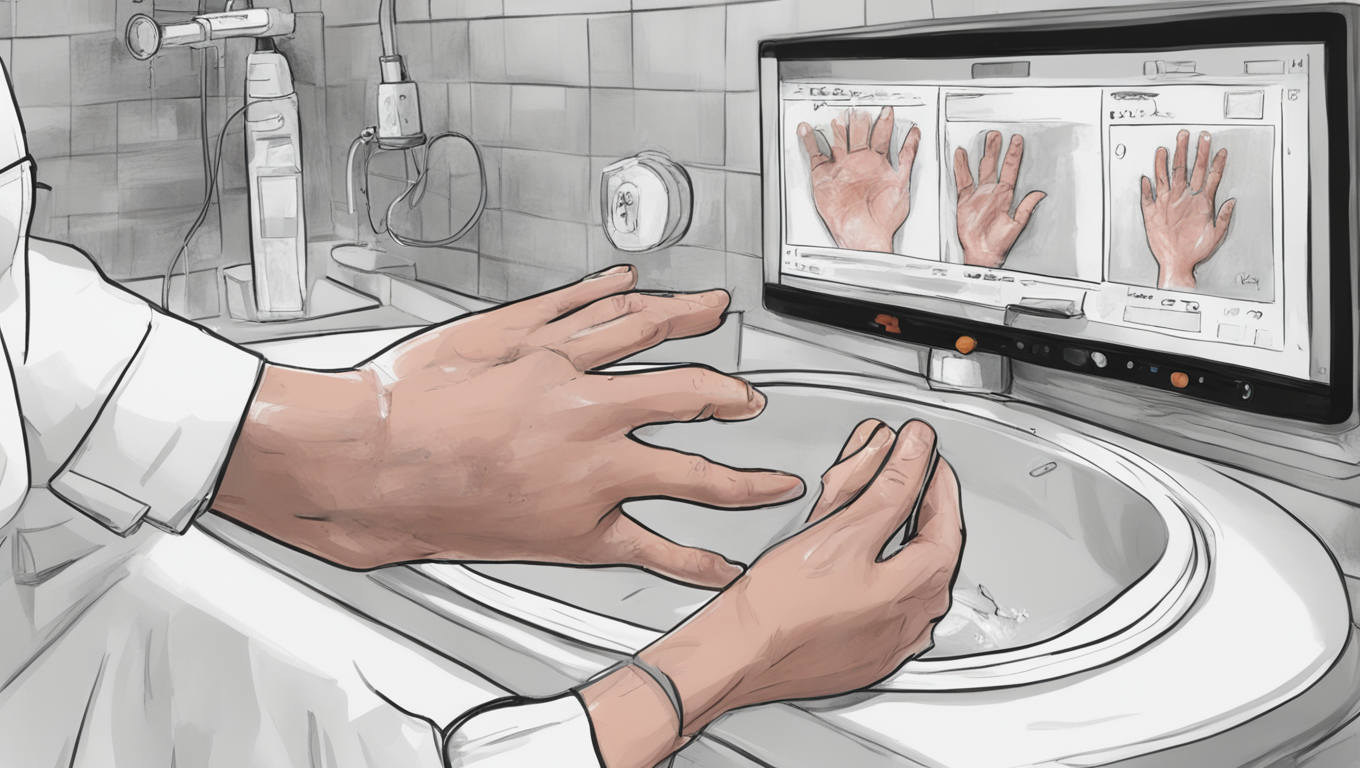A revolutionary AI hand-washing system has been developed by researchers at Dublin City University (DCU), aimed at ensuring proper hand hygiene among nursing students. This system, which uses camera technology to analyze hand movements according to World Health Organization (WHO) guidelines, has been introduced as part of a project funded by Erasmus+. The technology utilizes machine learning to determine if individuals have washed their hands correctly, with its accuracy improving as more data is collected.
When the correct hand-washing procedure is followed, a light is activated. Upon achieving this, students receive a code that allows them to generate a digital badge or certificate of competence. Dr. Daniela Lehwaldt, Principal Investigator of the Assessment in Healthcare Education goes Digital (AHEAD) project at DCU, emphasizes the significance of hand-washing skills for healthcare professionals, including nursing, medicine, and allied healthcare.
She explains, “Our technology is paving the way for resource-effective, high-quality digital competency assessment of hand-washing skills and it has been developed along with our partners in research institutions located in Poland, Germany, and Georgia.”
The prototype has already garnered interest, with a Dublin maternity hospital—one of the project stakeholders—expressing its vision for implementing the technology among parents of children in its neonatal intensive care unit. The goal is to create a mobile, AI-driven hand-washing system that can be easily transported to hospitals, clinics, or even homes.
The World Health Organization has previously highlighted the suboptimal compliance with hand-hygiene recommendations during healthcare delivery worldwide. In 2018, compliance levels in ICUs averaged at 59.6%, with significant disparities between high-income and low-income countries—64.5% versus 9.1%.
While the COVID-19 pandemic has led to increased emphasis on hand-washing, it remains uncertain whether this heightened awareness will persist. The AI hand-washing system offers a promising solution to incentivize and ensure proper hand hygiene among healthcare professionals, ultimately enhancing patient safety.
As healthcare institutions continue to prioritize infection control, innovative technologies like this AI system will play a crucial role in transforming how hand hygiene is assessed and monitored. With the potential to improve compliance rates and reduce the risk of preventable infections, the AI hand-washing system represents a significant advancement in healthcare education.
In the words of Dr. Lehwaldt, “Our technology is pioneering a new era of efficient and reliable digital assessment for handwashing skills, and we are excited to see its impact on healthcare practices across the globe.”





Use the share button below if you liked it.